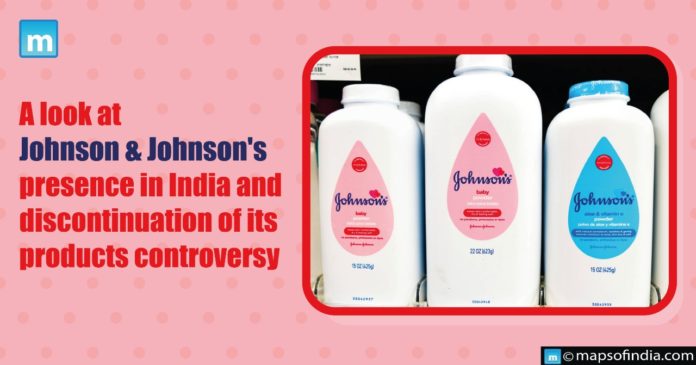Johnson & Johnson established a presence in India 70 years ago. In the years since then, the organization has introduced several creative concepts, products, and services designed to improve the health and well-being of Indians. Today, the firm employs over 3,500 people and operates in three business lines: consumer wellness, medical equipment, and pharmaceutical drugs.
Healthcare for Individuals
- Johnson & Johnson India ranks first or second in its respective categories with over a dozen renowned brands in its consumer sector.
- Their infant care, feminine cleanliness, facial care, OTC, oral care, and wound care products include trusted brands like Johnson’s Baby, Stayfree, Clean & Clear, Benadryl, Listerine, BAND-AID®, and ORSL that are trusted by people and medical practitioners in India and throughout the world.
Medical equipment
- The medical division of Johnson & Johnson India, the country’s largest manufacturer of medical devices, has contributed significantly to surgery for more than 60 years.
- Its products target unmet needs in orthopaedics, peripheral vascular, cardiovascular disease, arrhythmias, diabetes care, neurovascular disease, cancer surgery, vision care, bariatric and metabolic surgery, and many other fields.
Baby product market in India:
- By the All-India Organization of Chemists and Druggists, the infant product industry in India will be valued at more than $15 billion by 2022 and controlled by J&J.
- Rajiv Singhal, General Secretary of AIOCD, stated, “When you talk about the baby talcum product market in India, Johnson & Johnson still has the lion’s share in this portfolio. It has about 60 to 70% of market share in the country today,”
Latest Updates related to Johnson and Johnson (J&J):
- In recent times, J&J has been encircled by various controversies. Numerous lawsuits were filed against the company’s talc-based product.
- In response to these tens of hundreds of lawsuits filed by women alleging that the product caused their ovarian cancer due to the contamination of asbestos, a known carcinogen, J&J announced on August 11 that it would stop selling its talc-based baby powder globally in 2023.
- The corporation has upheld the product’s safety for years, which was restated on August 11.
- It said, “Our opinion on the quality of our facial talc remains unaltered.”
- J&J affirmed that their talc-based JOHNSON’S Baby Powder is harmless, does not contain toxic asbestos, and does not increase cancer risk by citing generations of independent scientific examination by medical professionals.
The scenario in India:
- Experts questioned J&J for not pulling the product off the market and why it should be supplied to Indians since the talc-based product is not in sale and is being sued. The corporation stopped selling the item in the United States more than two years ago.
- In India, the corporation is lagging in adopting the policy it has embraced in the Western world. “Why should a product be offered, and why not recall it if it is being withdrawn for manufacturing?” an official inquired.
- According to CDSCO norms, any batch of items that do not fulfil quality requirements in India must be recalled willingly or statutorily.
Let’s talk about Talc:
- Talc is produced from subterranean sources and is the world’s softest mineral. The US Food & Drug Administration (FDA) is chemically known as hydrous magnesium silicate. It is a component of many cosmetic and personal care items, including foundation, lipstick, eyeshadow, and baby powder.
- It may absorb moisture and lessen the friction when ground to a fine powder, keeping the skin dry, preventing rashes, preventing cosmetics from caking, and enhancing the quality and appearance of a product.
Can the usage of Talc lead to cancer?
- Talc deposits are often accompanied by asbestos deposits, a natural silicate mineral.
- The FDA states that “talc has a risk for asbestos contamination.” Asbestos is a material that has been used in production and construction and is known to trigger mesothelioma, ovarian cancer, lung cancer, and other illnesses.
- The American Cancer Society states that it is widely acknowledged that Talc tainted with asbestos can result in cancer. However, It is less specific, though, if asbestos-free Talc is also dangerous.
- Importantly, Talcum powder has been linked to ovarian cancer since the 1960s, when it was first used on sanitary products or in the vaginal region.




